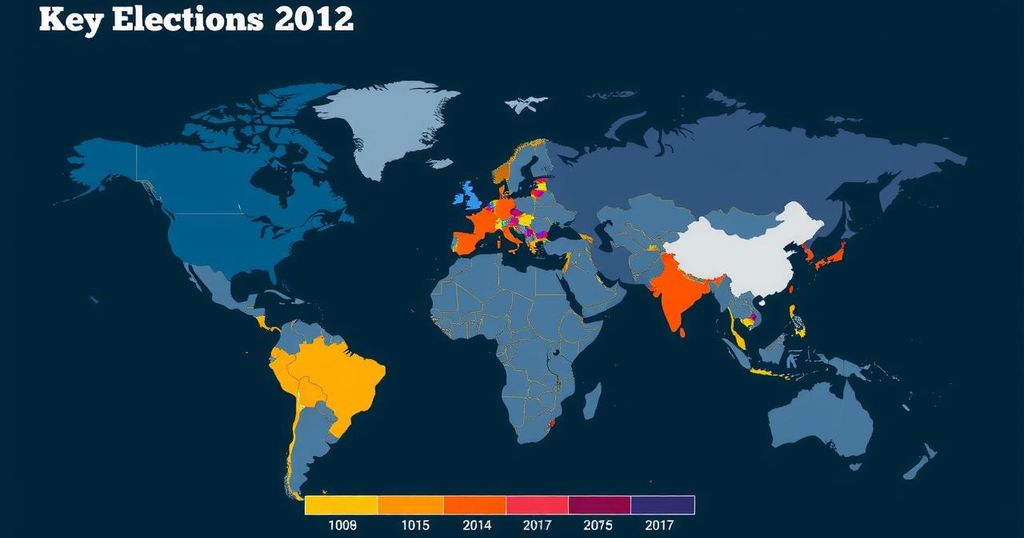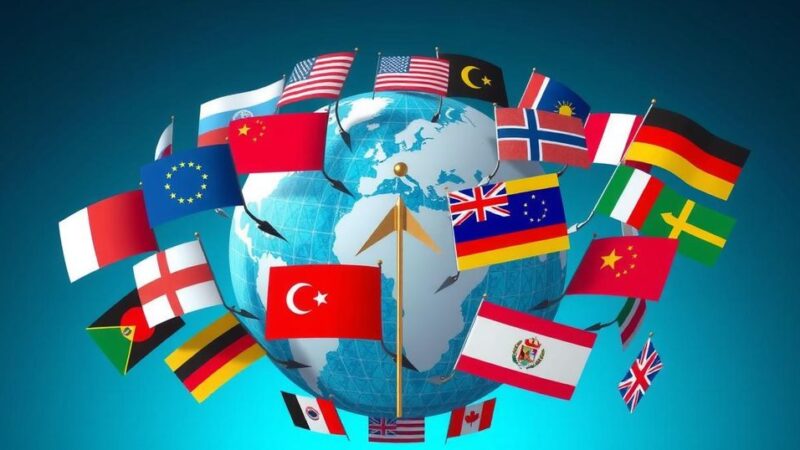The 2024 elections represented a crucial turning point in global politics, reflecting significant changes in leadership across major nations. Donald Trump’s return to the U.S. presidency, a noteworthy election in India, and the historic win of Claudia Sheinbaum in Mexico highlight varying political trends. Other elections in South Africa, Japan, Pakistan, the UK, France, and Senegal depict a world grappling with the complexities of democratic governance and shifting voter sentiments.
The year 2024 has been pivotal in shaping the global political landscape through a series of consequential elections worldwide. The United States witnessed Donald Trump’s return to power, marking a significant shift in both domestic and international politics. In India, Prime Minister Narendra Modi faced unexpected challenges from the opposition, signaling potential changes in the political climate. Meanwhile, Claudia Sheinbaum made history in Mexico as the first female president, defying global trends that favored incumbents’ losses.
In South Africa, a historic election resulted in a coalition government amid significant losses for the African National Congress, altering the nation’s political fabric. Japan’s Liberal Democratic Party experienced a rare loss of majority, although the right-wing dominance persists. Pakistan continues to grapple with unresolved tensions stemming from the political fallout of former Prime Minister Imran Khan’s imprisonment.
The United Kingdom saw a significant victory by the Labour Party, although early indicators suggest a re-emerging popularity of the Conservative Party. In France, President Macron’s snap election failed to consolidate power, resulting in a fragile coalition with far-right elements. Lastly, Senegal’s election reflects a rising trend of decolonial politics across Africa, with President Bassirou Diomaye Faye garnering support for anti-colonial policies. As Romania prepares for a critical presidential election, the potential implications for the European Union loom large.
In 2024, over a billion individuals participated in elections across various nations, each contributing to significant political shifts. The elections have not only reflected changing domestic sentiments but also the evolving dynamics of global politics. From the resurgence of populism represented by Donald Trump in the U.S. to the historical significance of Claudia Sheinbaum in Mexico, these elections illuminate the complexities of governance in today’s interconnected world. Additionally, the experiences of countries such as South Africa and Japan underlie the complexities of coalition politics and changing voter expectations.
In conclusion, the elections of 2024 have showcased diverse political narratives, with significant implications for each country’s future trajectory. Trump’s election signals a potential reorientation of U.S. foreign policy, while India’s shifting political landscape may alter the dynamics of governance. Claudia Sheinbaum’s victory in Mexico challenges global political trends, and the emergence of new coalitions in South Africa and France demonstrates the necessity for adaptive governance. Collectively, these elections foreshadow potential shifts in global power relations and domestic political stability.
Original Source: www.semafor.com






